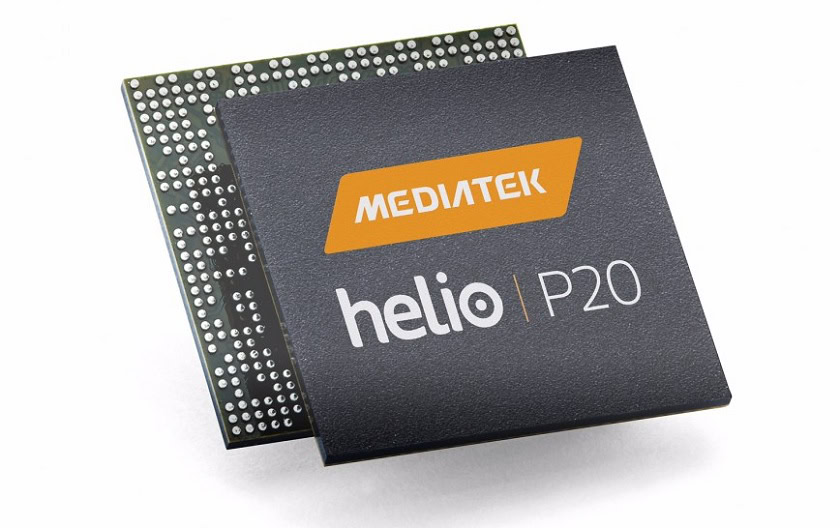Affiliate links on Android Authority may earn us a commission. Learn more.
MediaTek announces 16nm Helio P20 SoC with LPDDR4X RAM
Published onFebruary 24, 2016

Although smartphone hardware enthusiasts may be eagerly waiting to get their hands on this year’s first flagship handsets packing the latest high-end mobile SoCs, MediaTek has announced its new Helio P20 SoC, which could end up powering a number of upcoming smartphones in the equally popular mid-tier segment.
The Helio P20 builds on the octa-core P10 chip that the company unveiled 8 months ago, but offers up a number of tweaks and improvements that actually surpass the company’s X10 chip in some respects. This includes a move up to a smaller 16nm FinFET manufacturing process, which puts the P20 on par with leading high-end chips from Qualcomm and Samsung and is expected to offer a notable boost to power efficiency.
Peering inside the chip, we see that MediaTek is sticking with its popular octa-core design that is split into two quad-core Cortex-A53 clusters. The more powerful cluster has seen its clock speed boosted slightly from 2.0GHz to 2.3GHz, but we’re not sure about the smaller cluster, which was clocked at just 1.1GHz in the P10 chip. The GPU has seen a much larger boost to performance, moving on up from a Mali-T860MP2 @ 700MHz in the P10 to a higher-end Mali-T880MP2 clocked at 900MHz in the Helio P20.
| Helio P20 | Helio X10 | Helio P10 | |
|---|---|---|---|
CPU | Helio P20 4x Cortex A53 + 4x Cortex A53 @2.3GHz | Helio X10 4x Cortex A53 @2.2GHz + 4x Cortex A53 @2.2GHz | Helio P10 4x Cortex A53 @1.1GHz + 4x Cortex A53 @2.0GHz |
GPU | Helio P20 Mali-T880MP2 @ 900MHz | Helio X10 PowerVR G6200 @ 700MHz | Helio P10 Mali-T860MP2 @ 700MHz |
Memory | Helio P20 2x 32-bit @1600MHz LPDDR4X, 25.6GB/s or 1x 32-bit @ 933 LPDDR3, 7.4GB/s | Helio X10 2x 32-bit @ 933MHz LPDDR3, 14.9GB/s | Helio P10 1x 32-bit @ 933MHz LPDDR3, 7.4GB/s |
Process | Helio P20 16nm FinFET | Helio X10 28HPM | Helio P10 28HPC+ |
The Helio P20 also features an improved memory controller that is compatible with the newly standardized LPDDR4X memory. This evolution of regular LPDDR4 not only offers greater memory bandwidth over LPDDR3, but also improves power efficiency to halve the output drive power and cut total memory power consumption by 20 percent. This is accomplished by lowering the memory’s VDDQ voltage down to 0.6V.
There are a number of more subtle upgrades included with the Helio P20 as well. MediaTek has switched up its imaging components to support a 24 megapixel single sensor or dual 13 megapixel sensors. There’s 2160p30 H.264 and HEVC video decode, along with 2160p30 H.264 encode, which is upgraded from 1080p. However, the integrated modem remains a Category 6 component with 2 band carrier aggregation.
The first consumer devices powered by MediaTek’s Helio P20 processor are expected to ship out in the second half of the year.